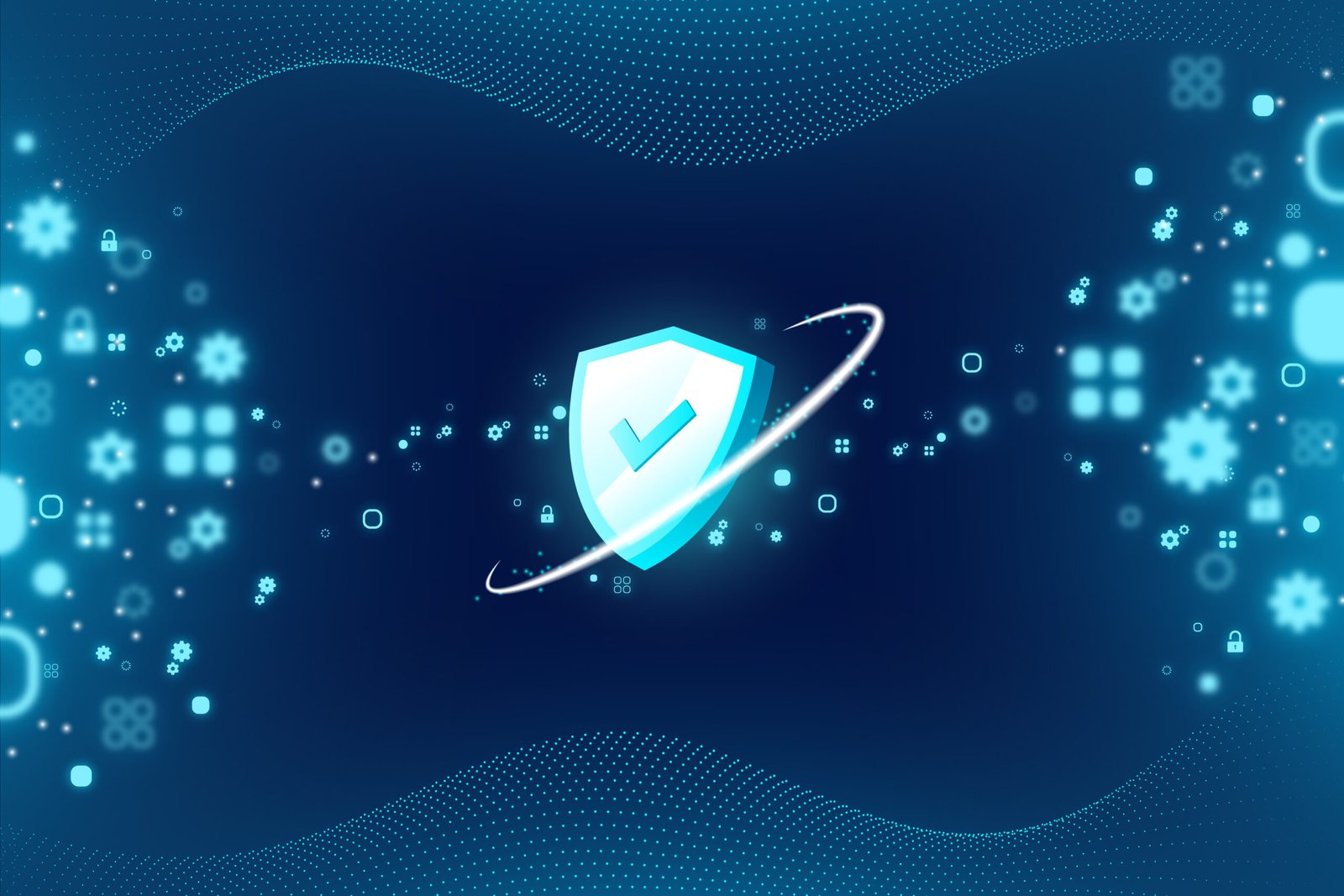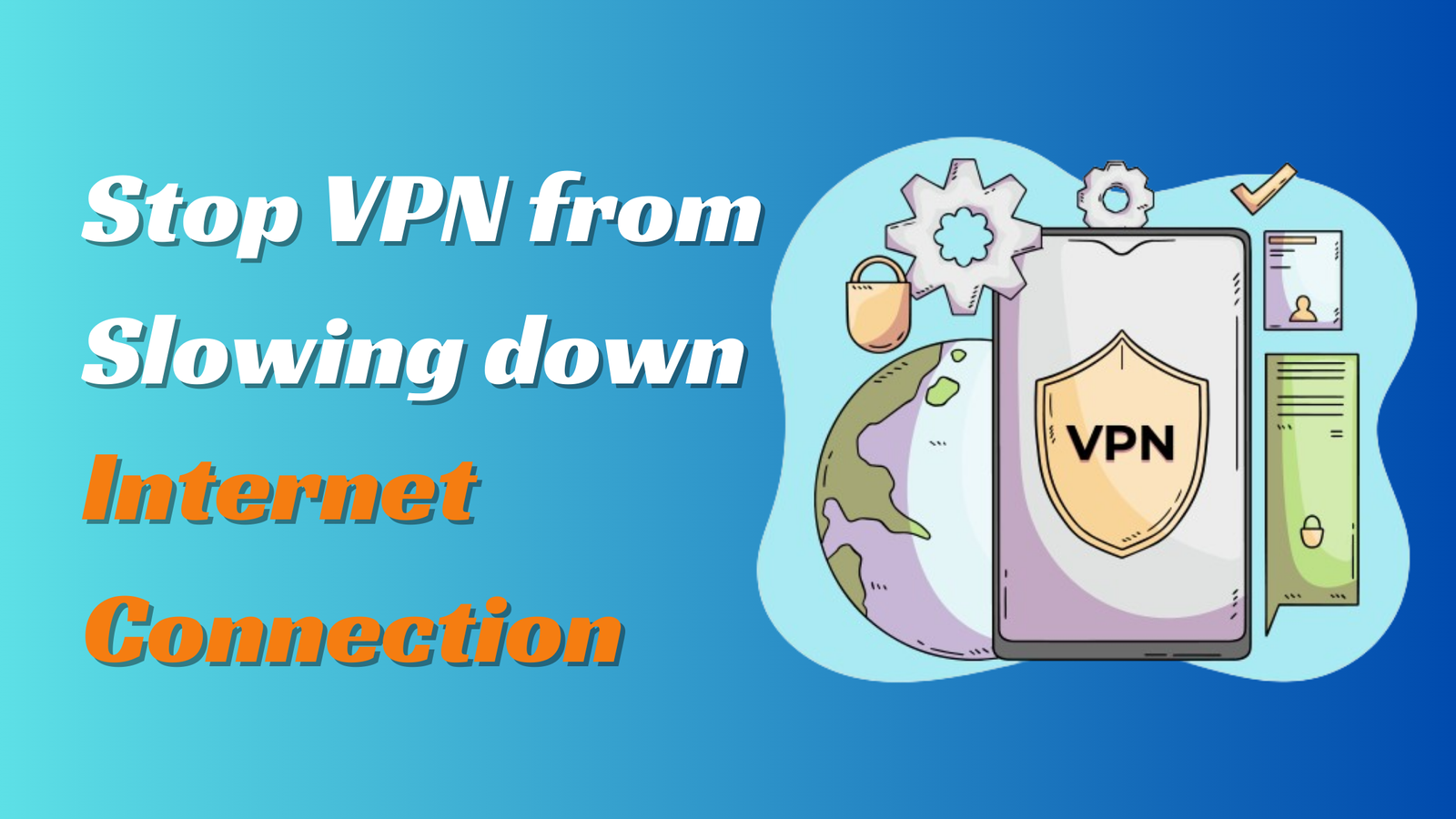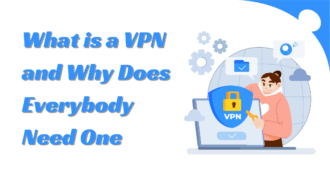Stop your VPN from Slowing down your Internet Connection
- 1 How To Stop VPN from Slowing Down Internet Connection
- 1.1 Connect to a Server from your Location
- 1.2 Avoid Connecting to Overloaded Servers
- 1.3 Use a Different VPN Protocol
- 2 Conclusion:
- 2.1 FAQs:
- 2.1.1 Why does using a VPN sometimes slow down internet speed?
- 2.1.2 How can I determine if a VPN server is close to my location?
- 2.1.3 Are there specific VPN protocols known for faster speeds?
- 2.1.4 Does using a VPN affect my streaming and gaming experience?
- 2.1.5 Can I switch VPN protocols within my VPN app?
- 2.1.6 Is it safe to prioritize speed over security when choosing a VPN protocol?
- 2.1.7 What should I do if my VPN doesn’t display server load information?
- 2.1.8 Will changing VPN protocols affect my online privacy?
- 2.1.9 Can I use a VPN to access geo-blocked content without sacrificing speed?
- 2.1.10 Are there any other factors besides VPN protocols that affect internet speed?
In Short:
- Connect to a Nearby Server: Opt for a VPN server closer to your location to minimize data travel distance and enhance speed.
- Avoid Overloaded Servers: Choose VPN servers with lighter loads to prevent speed slowdowns due to server congestion.
- Experiment with VPN Protocols: Test different VPN protocols to find the best balance between speed and security for your needs.
In today’s digital landscape, using a Virtual Private Network (VPN) is a common practice for enhancing online privacy and security. However, some users experience a significant decrease in internet speed when using a VPN. This guide addresses this issue by providing practical tips to optimize your VPN connection for faster speeds without compromising security.
Did you know that using a VPN could halve your internet speed? This can mean problems for your streams and your games. If you want to speed things up, here’s what you must do.
How To Stop VPN from Slowing Down Internet Connection

Connect to a Server from your Location
As a general rule, the closer the VPN server is to your location, the faster speeds you’ll get. Your traffic will have a much shorter distance to travel if you route it through a VPN that is close by rather than choosing one that is halfway across the world. For example, if you’re in Boston, your VPN will be faster if you connect to one in New York City rather than Tokyo or Sydney. However, this isn’t practical if you want to stream content from a specific country.
One way to work around this would be to see if an alternative site isn’t geo-blocked for your location. It’s important to note that geo-blocking is generally helpful for sectors like the entertainment industry because many brands, like Netflix, have alternative domains set up to cater to worldwide users.
Another prime example within the entertainment industry is casino sites. If you’re in New Zealand, for instance, you may not be able to access a US casino site, but you’ll be able to access almost any New Zealand casino site, including Jackpot City Casino. You can also access NZ-based comparison sites using a VPN, including views of Jackpot City Casino NZ. This allows you to access all the necessary information relevant to the games you want without halving your internet speeds using a VPN.
You might want to use a speed test if you need a VPN to stream content from a specific country. This is so you can see how much you’re losing out on. This allows you to choose a VPN with the best online browsing experience.
Avoid Connecting to Overloaded Servers
When too many people use one VPN server, the server becomes overloaded, and you may find that your connection takes a hit. Some VPN services display the total server load on the main website.
If you choose a virtual private network that has a lighter load, you should be able to take advantage of faster speeds. If your VPN doesn’t display the load speeds on international servers, see if you can connect to a couple of different ones to see which will give you the best speeds. A lot of the time, it’s trial and error, but it should help you to avoid taking a hit when browsing online.
Use a Different VPN Protocol
A VPN protocol is a set of instructions between the VPN server and the VPN app on your device. There are several VPN protocols, and providers often allow you to choose between many options. Different protocols come with varying advantages regarding speed and security.
If you happen to connect to a specific VPN protocol, you may find that you can boost the speed of your VPN as a result. The highest standard of VPN protocol would be OpenVPN. This offers so much stability, security, and speed that many VPN providers opt for this choice. More VPN services are now offering newer protocols, including WireGuard and IKEv2. This promises much faster speeds, as well as excellent security.
Some have even developed VPN protocols, including NordVPN’s own NordLynx. If your VPN service offers it, swapping to another protocol is often the best way to take advantage of faster connection speeds. Just be mindful of the fact that speed should never compromise security.
If you prefer OpenVPN, opt for UDP over TCP if speed is your primary concern. TCP is the most stable but slower as data packets must be sent in the correct order and wait for confirmation before sending the next packet. Most VPNs allow you to change the protocol you use through the app. Navigate to the settings section to see which will give you the fastest speed.
Implementing the above tips can dramatically increase your internet speed without compromising security.
Conclusion:
Navigating the internet speed and security balance is essential for optimizing your VPN experience. Users can significantly improve their internet speeds without compromising security by implementing strategies such as connecting to nearby servers, avoiding overloaded server loads, and experimenting with VPN protocols. Whether streaming content, gaming, or accessing geo-blocked websites, optimizing your VPN settings according to these guidelines ensures a smoother and faster online experience while maintaining privacy and security. By staying informed and proactive, users can make the most of their VPN connections in today’s digital landscape.
FAQs:
Why does using a VPN sometimes slow down internet speed?
VPNs encrypt and route internet traffic through remote servers, which can introduce latency and reduce speed, especially if the server is far away or overloaded.
How can I determine if a VPN server is close to my location?
Most VPN providers offer server location information within their apps or on their websites. You can also use online tools to measure ping times to different server locations.
Are there specific VPN protocols known for faster speeds?
Yes, protocols like WireGuard and IKEv2 are designed to offer faster speeds compared to traditional protocols like OpenVPN.
Does using a VPN affect my streaming and gaming experience?
Depending on the VPN’s speed and the server you’re connected to, it can. Opting for nearby servers with low loads and fast protocols can mitigate this impact.
Can I switch VPN protocols within my VPN app?
Many VPN apps allow users to switch between different protocols within the app’s settings section.
Is it safe to prioritize speed over security when choosing a VPN protocol?
While speed is essential, it’s crucial not to compromise on security. Look for protocols that offer a balance between speed and security.
What should I do if my VPN doesn’t display server load information?
You can try connecting to different servers and monitoring their performance to identify less congested options.
Will changing VPN protocols affect my online privacy?
No, changing protocols only alters how your data is transmitted, not the level of encryption or privacy provided by the VPN service.
Can I use a VPN to access geo-blocked content without sacrificing speed?
Yes, by selecting servers strategically and experimenting with different protocols, you can access geo-blocked content with minimal impact on speed.
Are there any other factors besides VPN protocols that affect internet speed?
Yes, factors like your device’s processing power, network congestion, and your ISP’s speed can also influence your internet speed while using a VPN.

















